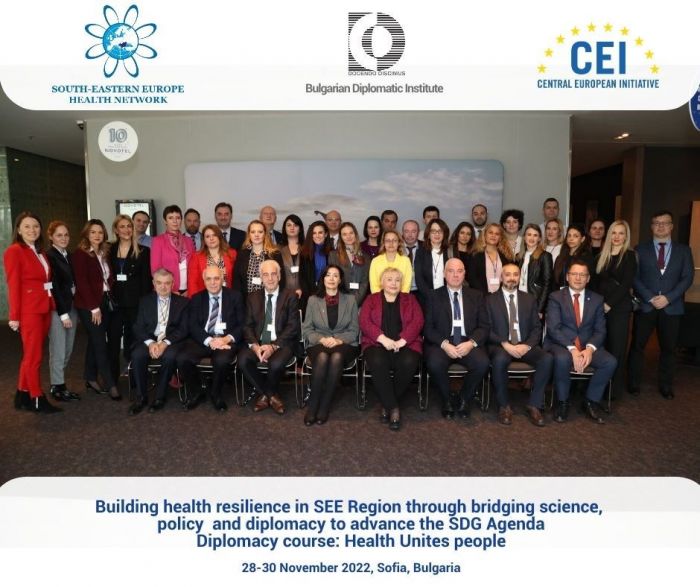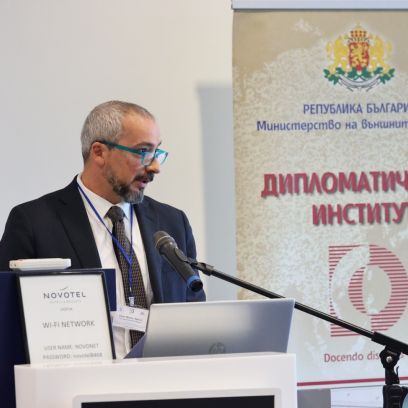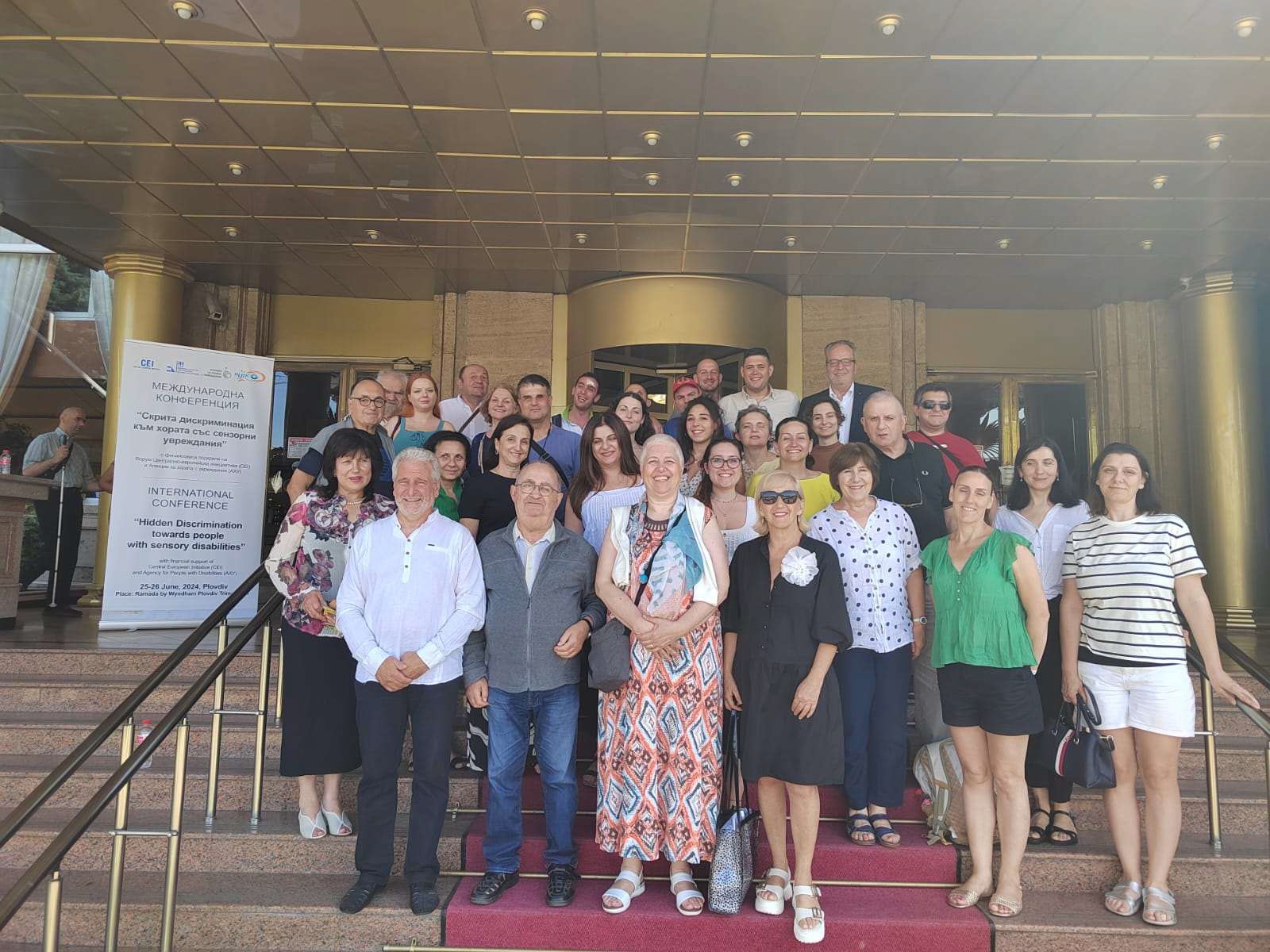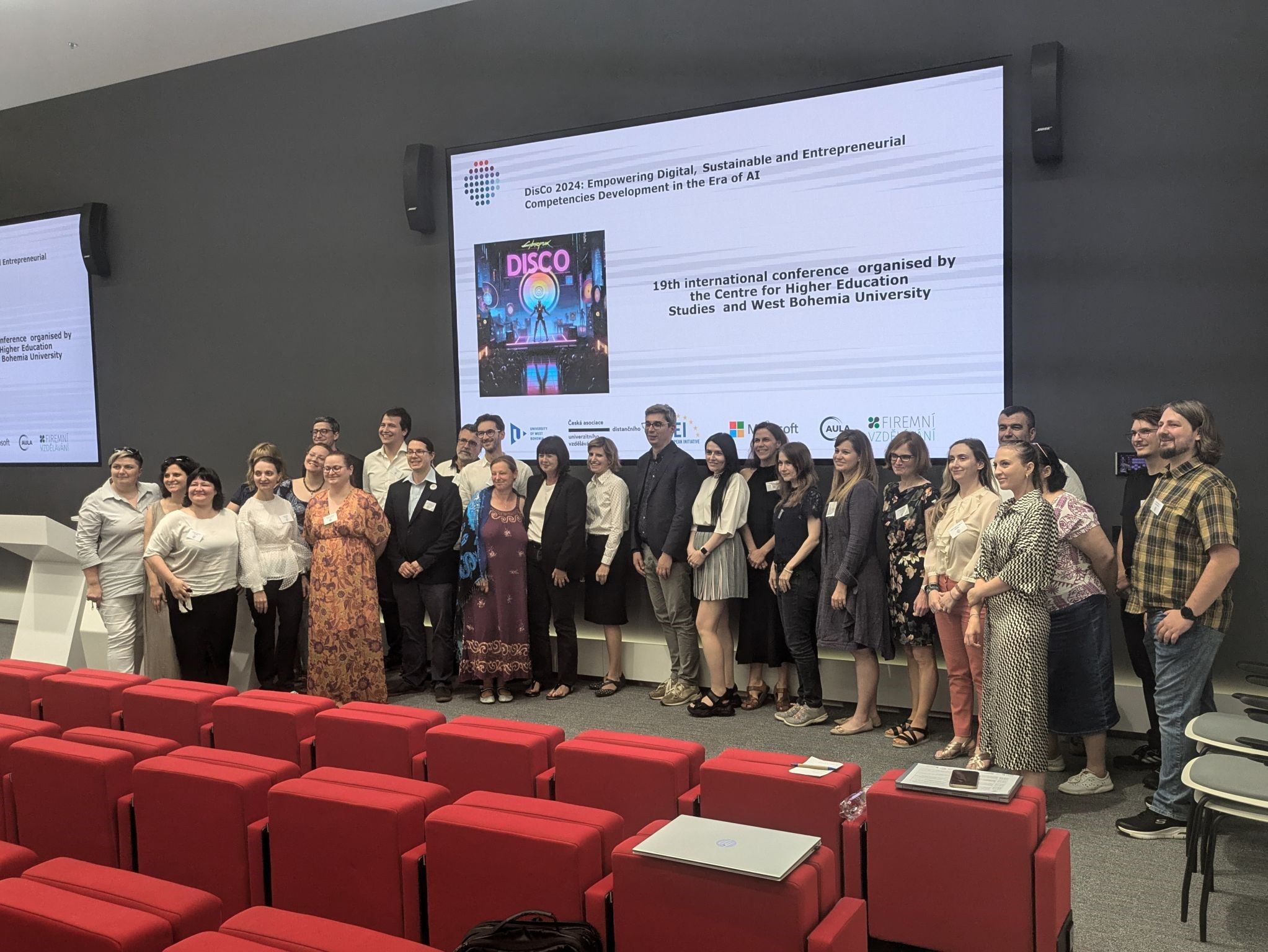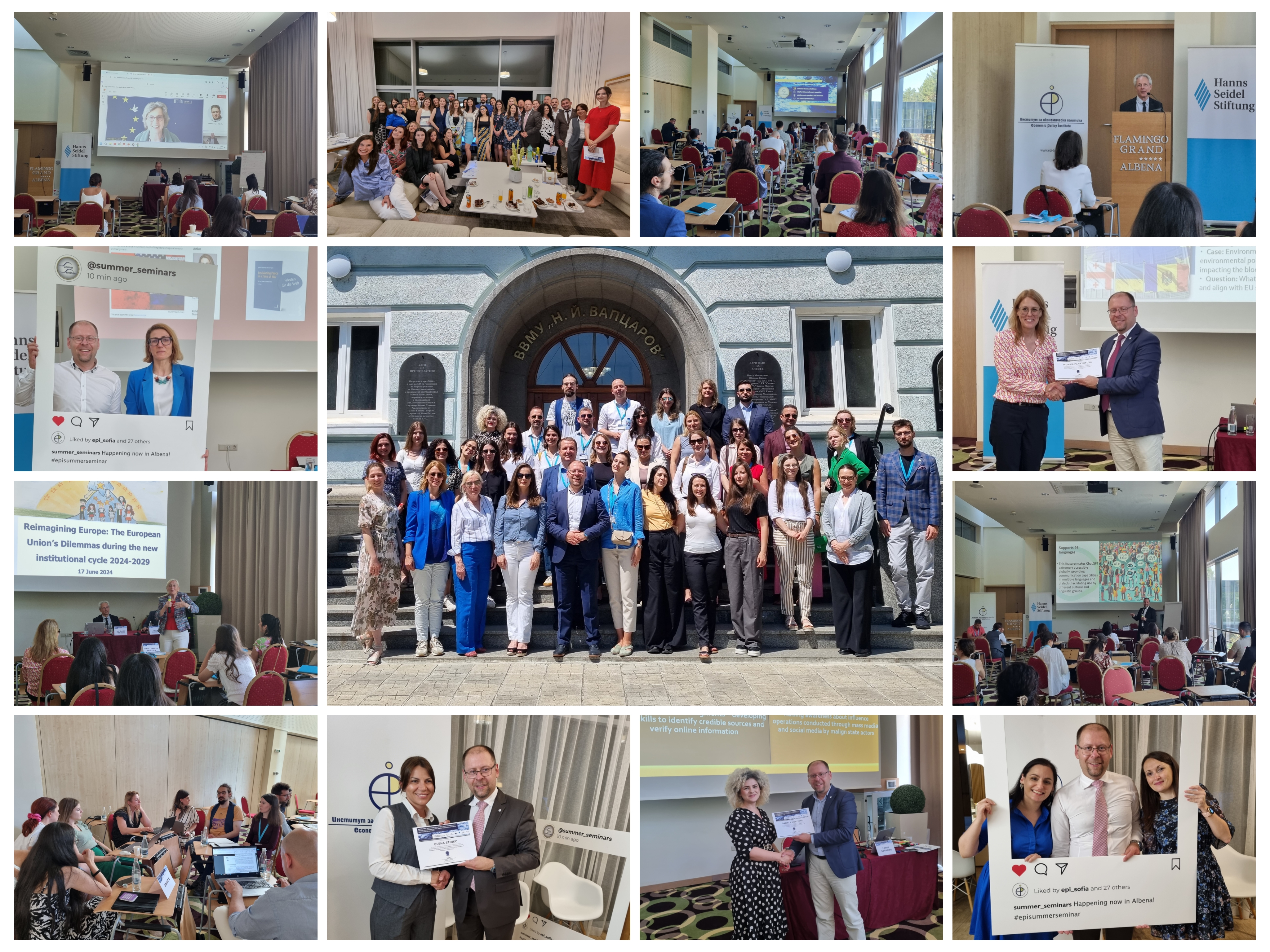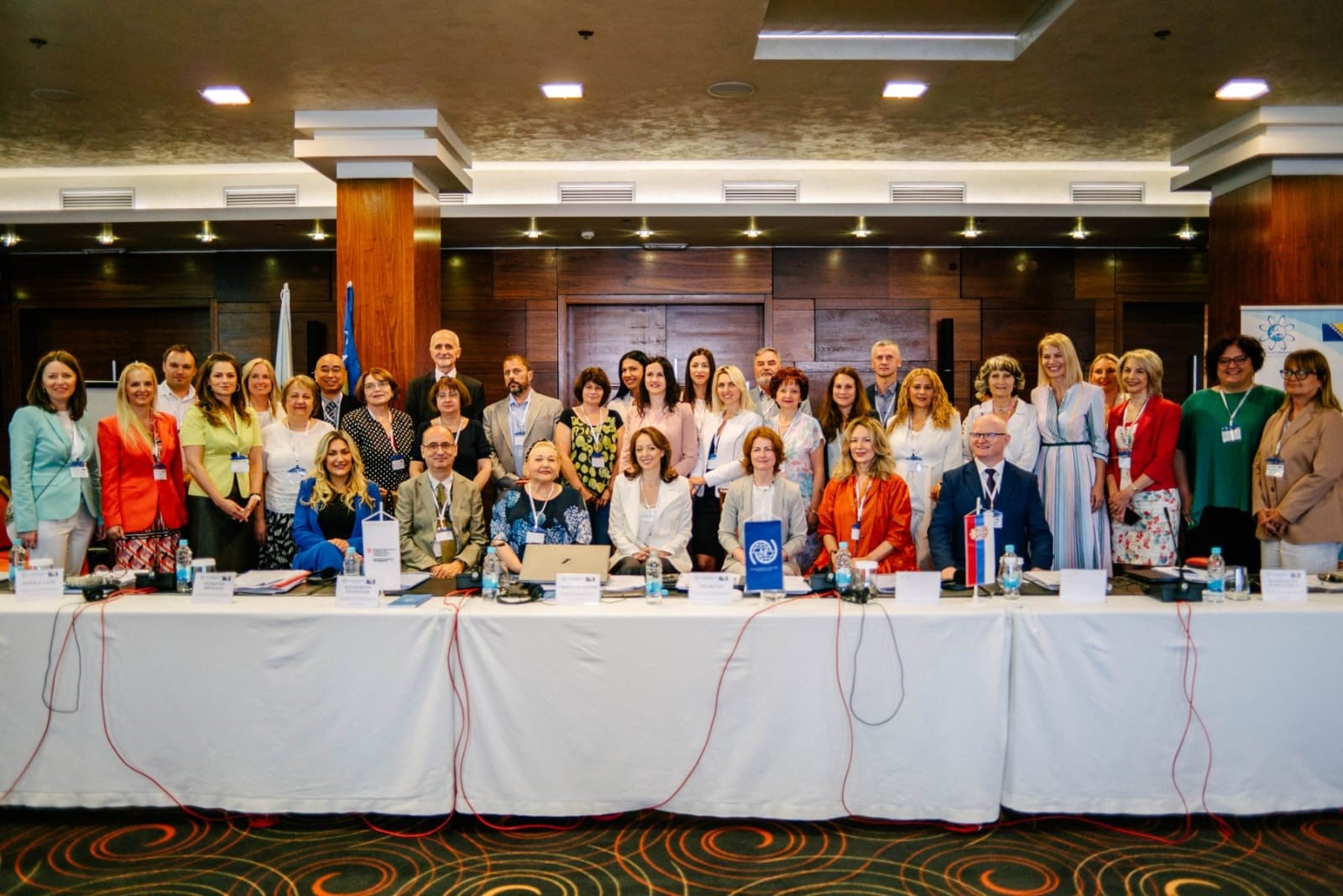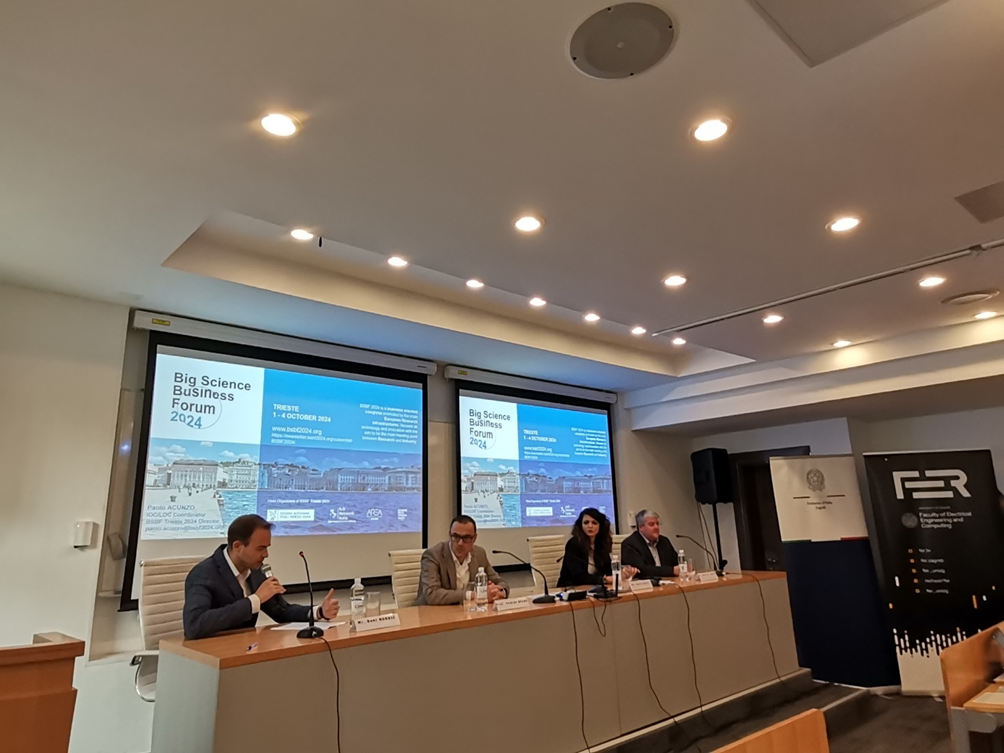Recent years have been increasingly challenging, revealing the urgency to address global health as a defining pillar of the worldwide architecture and agenda, with global health diplomacy as a defining tool in this process.
But a successful health diplomacy is not only based on public health knowledge and evidence; and building and strengthening core competencies in the theory and practice of diplomacy is a core direction for global and regional health investment.
Bearing this in mind, more than 30 delegates from the Ministries of Foreign Affairs and Ministries of Health of CEI Member States gathered in Sofia on 28 November to attend the three-day Health Diplomacy Course on Building health resilience in SEE Region through bridging science, policy and diplomacy to advance the SDG Agenda: Health Unites People.
The event - opened by high-level experts and representatives from the South Eastern Europe Health Network - SEEHN, the Bulgarian Ministry of Foreign Affairs, the World Health Organisation and the CEI-Executive Secretariat - focused on bridging health policy, science and diplomacy for better health outcomes in the South Eastern European region. The lectures included experts from the Graduate Institute for International Affairs and Development, Geneva, Switzerland, the Bulgarian Ministry of Foreign Affairs and the University of Debrecen, Hungary.
Among the specific issues addressed, the basics of global health diplomacy, such as governance, actors, multilateral interactions and dimensions of global health diplomacy, negotiation tools and frameworks, protocol and etiquette. The sessions also focused on challenges related to lessons learned from the COVID-19 pandemic, the WHO's international tools for pandemic prevention, preparedness and response, and interactions between regional and global health diplomacy.
Gian Matteo Apuzzo, CEI Senior Programme Manager and Focal Point for Health Strategies underlined that Inter-governamental Organisations with a strong territorial and institutional presence, such as the CEI, had the responsibility and privilege to understand the complexity of current times before others and to, consequently, set new priorities embracing the changes taking place. He added that Health Diplomacy, therefore, emerged as a driving force, inspiring the work, efforts and accomplishments of so many different communities, and that it represented a tool for a more equitable and inclusive vision of health and wellbeing.
This CEI-supported course is co-organised by the South East European Health Network (SEEHN), the Ministry of Health of Bulgaria and the Bulgarian Diplomatic Institute.
For more info: apuzzo@cei.int

